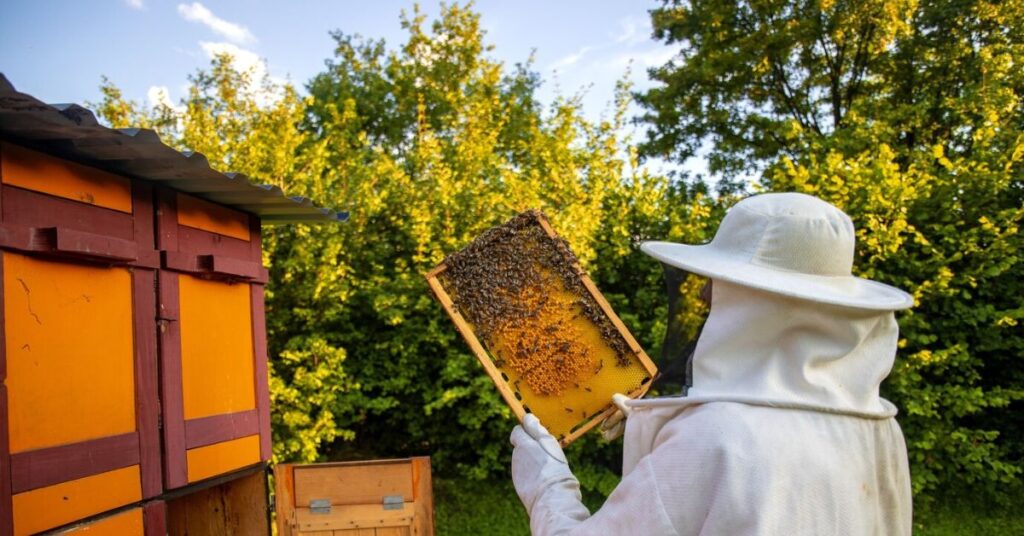Introduction
Bees and wasps are crucial in our ecosystems, particularly pollinating and controlling pest populations. However, when they choose to nest close to human homes, they can become more of a nuisance than a benefit. This underscores the importance of experts like Bee & Wasp Control in Boston, which aim to manage these industrious insects effectively while safeguarding their ecological contributions. By implementing strategies to prevent bees and wasps from settling in and around your home, you protect your comfort and safety and maintain the natural balance these creatures help uphold.
Understanding Nesting Habits of Bees and Wasps
To effectively prevent bees and wasps from choosing your home as their nesting site, it’s important first to understand their nesting habits. Bees typically nest in cavities in hollow trees, walls, or even old furniture. At the same time, wasps might construct their papery nests in eaves, attic spaces, or even underground sites, depending on the species. Recognizing these preferences can help identify potential hotspots and implement effective preventative measures.
Identifying Potential Nesting Sites
Common Areas Around the Home
Bees and wasps often seek shelter in locations that offer protection from the elements, making common areas around the home prime targets. Overhangs, attics, gutters, and garages are particularly attractive for nesting. Routine inspections of these areas, particularly in the spring and summer, can help in early identification of nesting activity, allowing homeowners to address issues before colonies become established. Keeping these zones clean and clutter-free reduces the likelihood of them becoming attractive nesting sites.
Natural and DIY Deterrents
Plants and Herbs
Strategic planting around your home is an effective way to deter bees and wasps. Plants and herbs such as peppermint, eucalyptus, and citronella are known for repelling these insects. Planting these around entryways and windows can serve as a natural barrier. Not only do these plants provide a fragrant aroma, but they also enhance the aesthetic appeal of your home, offering both beauty and functionality.
Household Solutions
Household items can be just as effective for those seeking cost-effective solutions in creating deterrents. Sprays made from essential oils like tea tree and clove or a mixture of vinegar and water can be applied to areas prone to hosting nests. These solutions alter the scentscape, making the area less attractive to nesting bees and wasps without harming the environment.
Regular Maintenance and Cleaning
Routine maintenance prevents bees and wasps from choosing your home as their nesting site. Keeping your property clear of debris and trash reduces possible nesting opportunities. Ensure garbage bins are tightly closed and yard waste is promptly disposed of. Additionally, sealing cracks and crevices in your home’s structure can prevent access to potential nesting cavities. Regularly inspecting your home’s exterior for gaps in siding or openings around windows and doors helps maintain an insect-proof perimeter.
When to Call the Professionals
Signs That Necessitate Intervention
If preventative measures aren’t enough and you notice heightened bee or wasp activity around your home or discover a significant nest, it’s time to consider professional help. Professionals can safely remove nests and offer advice on further preventative measures. For urban environments, services like the Environmental Protection Agency provide guidelines that ensure effective and environmentally conscious pest control practices are followed.
Benefits of Professional Control Services
Professional pest management services have the expertise and equipment to efficiently handle bee and wasp issues. They can identify and remove nests early with minimal disruption to the insects and your household, ensuring safety and peace of mind. Engaging with professionals addresses current infestations and equips you with knowledge on how to prevent future occurrences, fostering a pest-free environment in the long term.
Environmentally Friendly Practices
It’s essential to approach bee and wasp control with environmental consciousness. Efforts should be made to preserve these beneficial insects where possible, as they play crucial roles in pollination and ecological balance. Many communities support programs that focus on education and promoting pollinator-friendly environments. By adopting eco-friendly practices and participating in community initiatives, homeowners contribute to the broader conservation goals that ensure the health and prosperity of bee and wasp populations.
Conclusion
Preventing bees and wasps from nesting near your home involves understanding their habits, employing natural deterrents, and maintaining a clean living space. By taking the necessary steps, you can enjoy a peaceful coexistence with these insects while ensuring your household’s safety and preserving the ecological functions they serve. For situations that exceed home-implemented remedies, professional services provide a reliable solution to manage and mitigate any potential conflicts. Such proactive measures protect your home and family and support the harmonious integration of nature and urban living.







